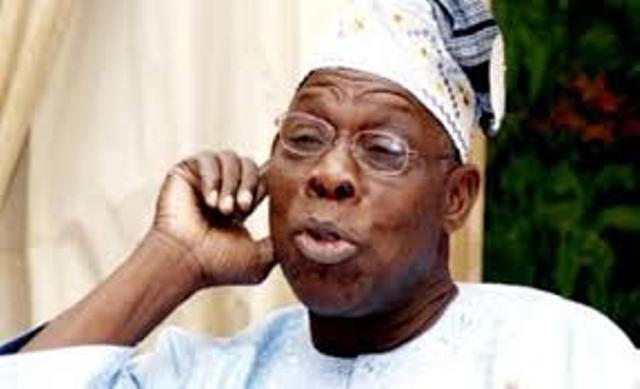The former president, Chief Olusegun Obasanjo has warned that
Nigeria is precariously heading towards bankruptcy occasioned by continuous
accumulation of debts by the government.
Obasanjo made the declaration in his presenatation as a keynote speaker at the ‘Why I am alive’ campaign held in Lagos yesterday.
The initiative, tagged ‘The Nigerian Story,’ and created by the chief executive of Eureka Productions, Ms. Caroline Moore, was moderated by the founder of Trinity House, Pastor Ituah Ighodalo.
The ex-president who presented a paper ‘Nigeria: The challenges of debt and sustenance of democracy,’ recalled that as at 2015, the country’s total external debt was about $10.32 billion.
However, he said Nigeria’s external debt profile had, over some four years, grown by as much as 700 per cent to N24.947 trillion ($81.274 billion) as at March 2019.
“As at 2015, total external debt was about $10.32billion. In four years, our external debt grew to N24, 947 trillion or $81.274 billion.
“To service this current level of indebtedness, we must commit at least 50 per cent of our foreign earnings, such a situation tells about an impending bankruptcy because no entity can survive while devoting 50 per cent of its revenue to debt servicing.
“In 2018, total debt servicing cost took over 60 per cent of government revenue. As if this is not bad enough, we are currently seeking to add another $29.6 billion loan to our already overburdened debt portfolio.
“Our current budget, out of which we are spending 25 per cent to service debt is not our total earnings, a lot of it is also borrowing. We are borrowing to service what we have borrowed and yet we are borrowing more,” he said.
He said “such a situation talks about impending bankruptcy’ while lamenting that “we are not doing enough to address the fundamental, deep-seated and structural challenges that inhibit the expansion of our economy.
“I do not need the brain of any genius to conclude that those who use statistics to dig us deeper into debt are our enemies. Statistics can be used to serve any purpose, and that is why Winston Churchill talked of lies, damn lies and statistics, meaning statistics can be made master of lies.
Although he said debt could be used to finance growth and/or development, Obasanjo however stated that it is “double-edged sword that must be wielded with a high degree of discipline, responsibility and foresight.”
He added: “A well-calibrated debt for infrastructure and other developmental goals could be very positive. However, we do not need to speculate. We need to examine our historical experience.
“Everyone knows that our governments are notoriously deficient in serious and adequate discipline and most often lack competence and consistency as well.”
For instance, he said the country borrowed to build a light rail in Lagos, embarked on the project, but a governor abandoned the project for his full term of four years at 65 per cent completion – when the country should have started defraying the loan.
However, he said that type of situation was not in Lagos alone but in other states like Rivers and Cross River.
He added: “The federal government built a nice looking extension to the Murtala Mohammed International airport that looks completed from outside but not in service.
“To rub ‘aboniki’ on the injury, some clowns are talking of demolishing the main airport and rebuild from scratch. Where on earth is a poor country wasting resources that way?”
Obasanjo slammed the country’s political leaders, saying they have developed appetite for debt.
“Our political leaders have suddenly developed not just a taste for, but a voracious appetite for debt.
“As usual, most of such debts procured are hardly thought through.
“Predictably, ability to repay such debts is lacking.
“Unfortunately for us and unlike in the past, the new creditors are less tolerant of our limitations and inadequacies and are now demanding to manage institutions and agencies with a view to recouping their loans,” he said.
The ex-president said his fears were informed by his experience about jumbo loans “and my agony in getting rid of our external debts and developing a sustainable approach to address our domestic debts.”
“It was a painstaking exercise that involved not just a national strategy but a continental and international one which eventually yielded significant gains.
“To now see all those efforts, go to waste barely less than 15 years after that watershed moment is more than disturbing. It is painful and retrogressive.
“Nigeria’s leadership was key in the campaign for debt relief in the late 90s/early 2000s. Our relapse into debt will be wrong, signalling to the rest of the continent and could be tantamount to backing the entire continent into another era of ‘highly-indebted poor countries,’” he added.
He said it would be irresponsible to bequeath debt to future generations.
“For once, all Nigerians need to rise up and shout in one voice and call on the national assembly to rise up to its core duty and responsibility and save our children and our grandchildren and great-grandchildren from being mired in debt.
“Let us use other options. Saudi Arabia, I understand, will be raising over $20 billion to finance projects through private equity. We can do likewise.
“We have several national assets that could be used to raise some of the funds that we need in this respect for infrastructural development to give assurance to private sector investors and PPP (public-private partnership) investors, if necessary,” he said.
Besides, he called for national dialogue or debate on Nigeria’s short, medium and long-term plans as a nation,
In his remarks, Ighodalo, who moderated the session, said the campaign was “designed to empower young Nigerians for the future by tapping into the key lessons from success stories of eminent personalities that have contributed to the social, economic and political growth of Nigeria.”
























































